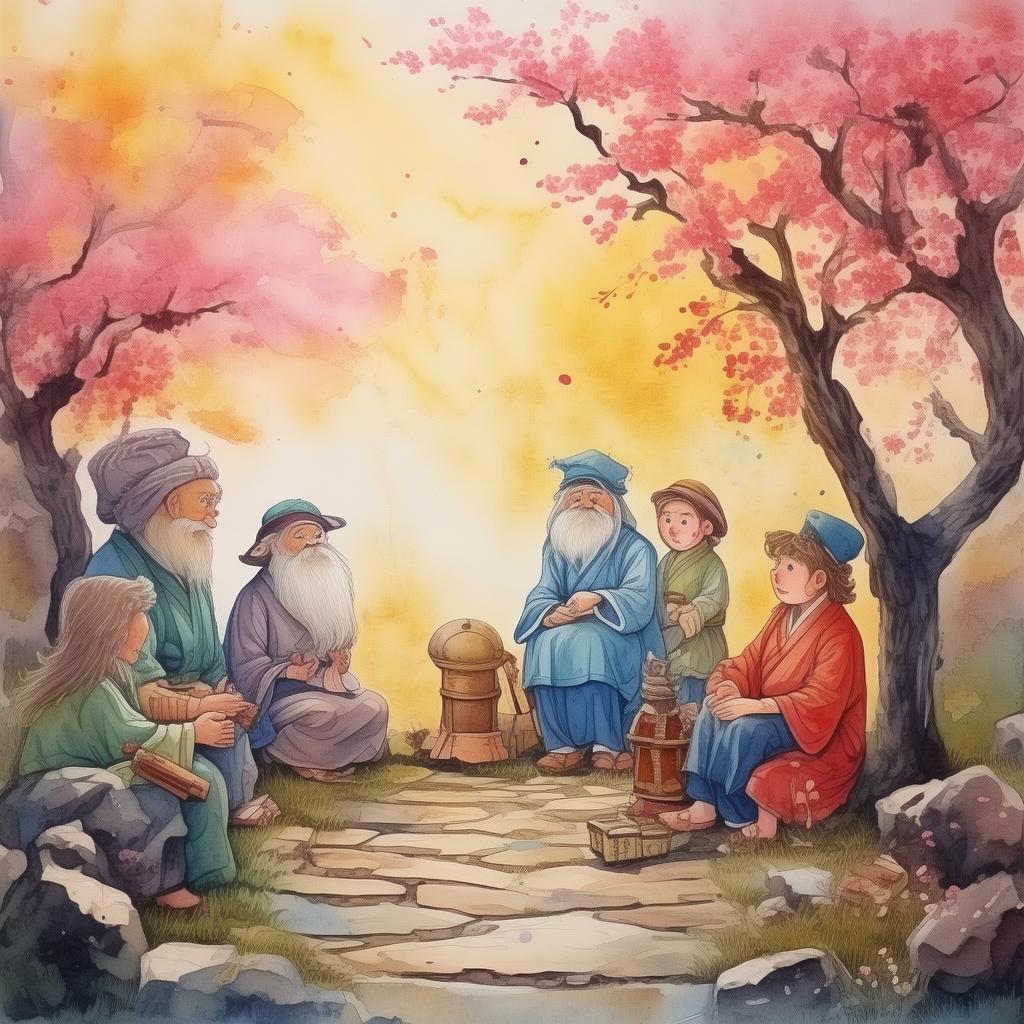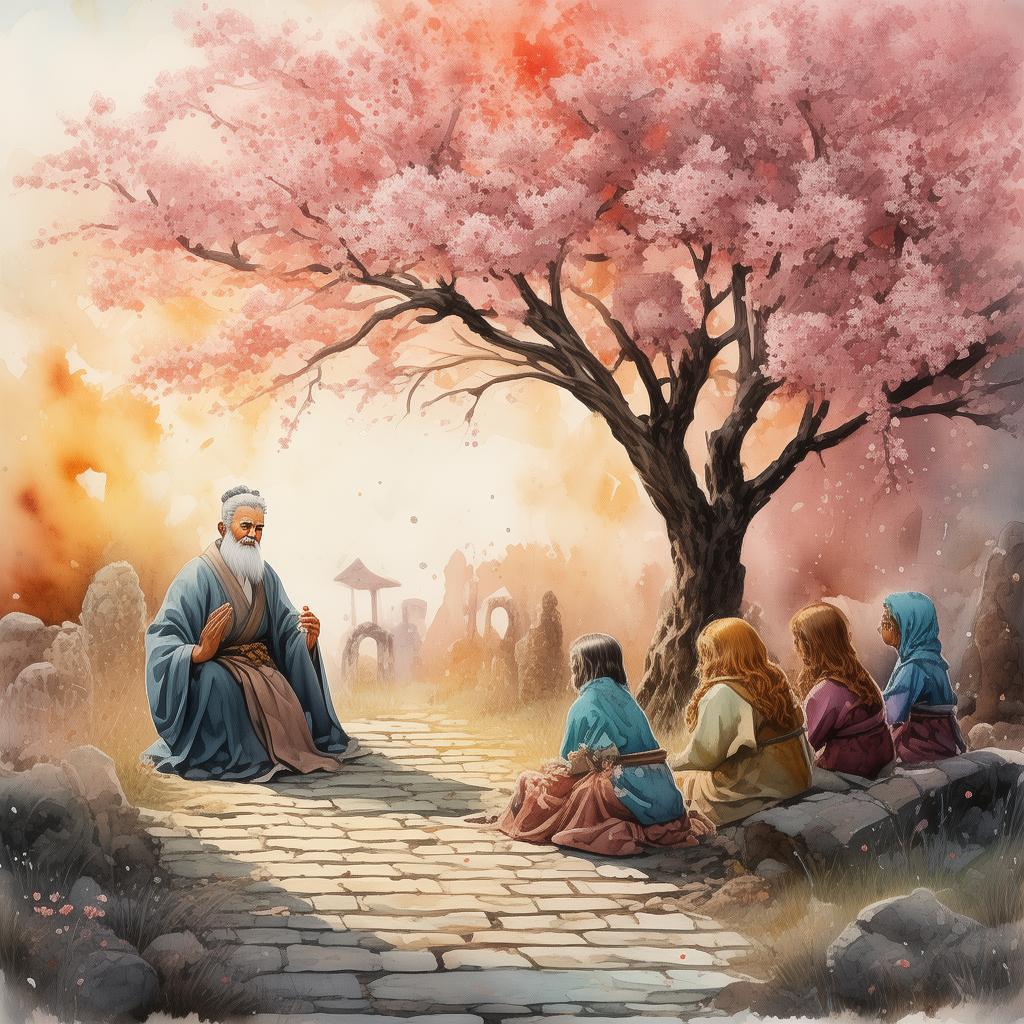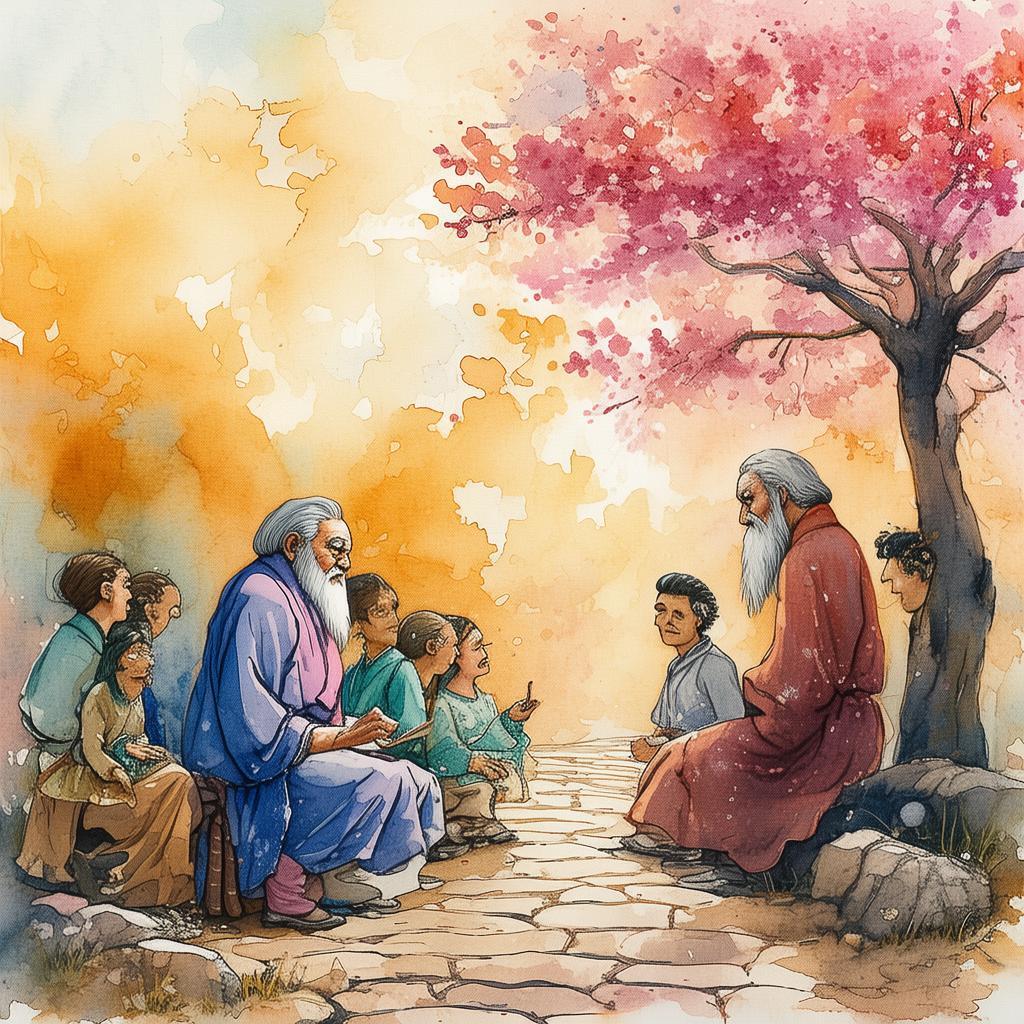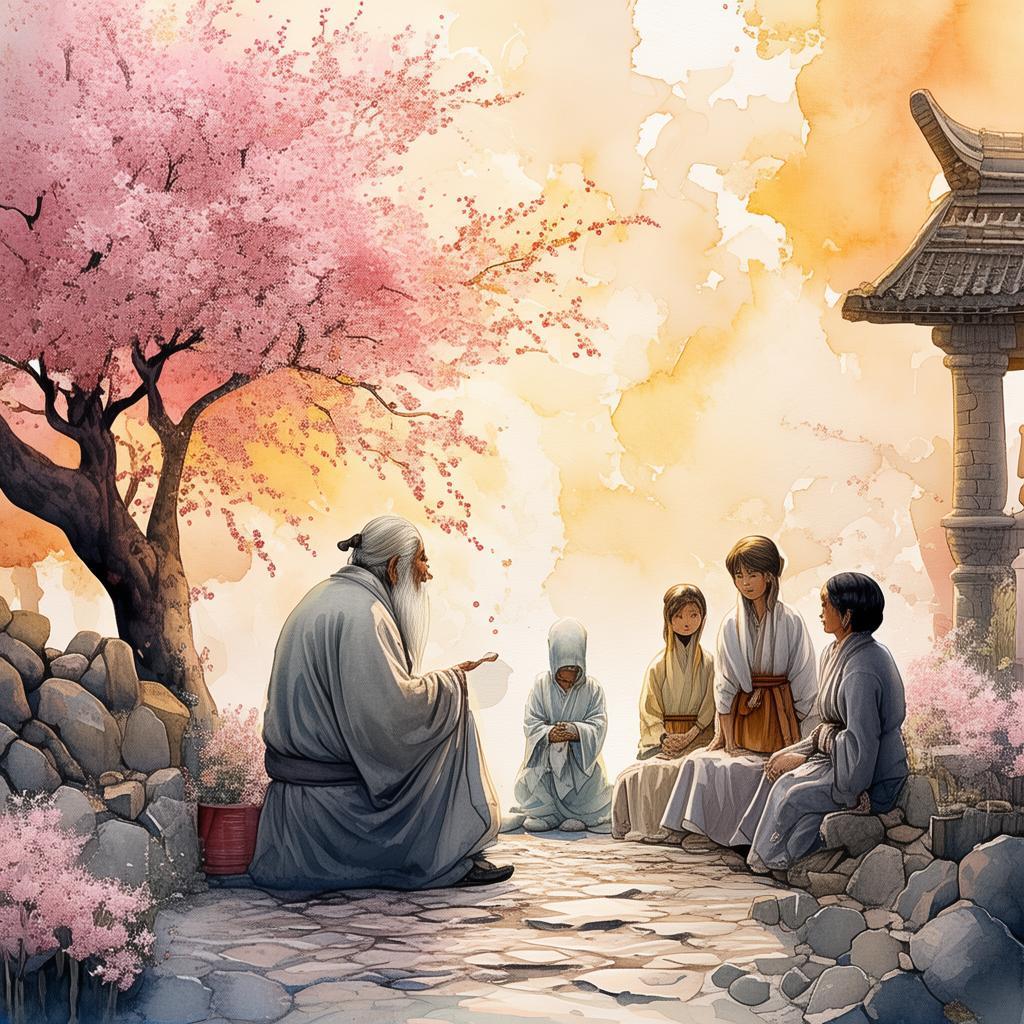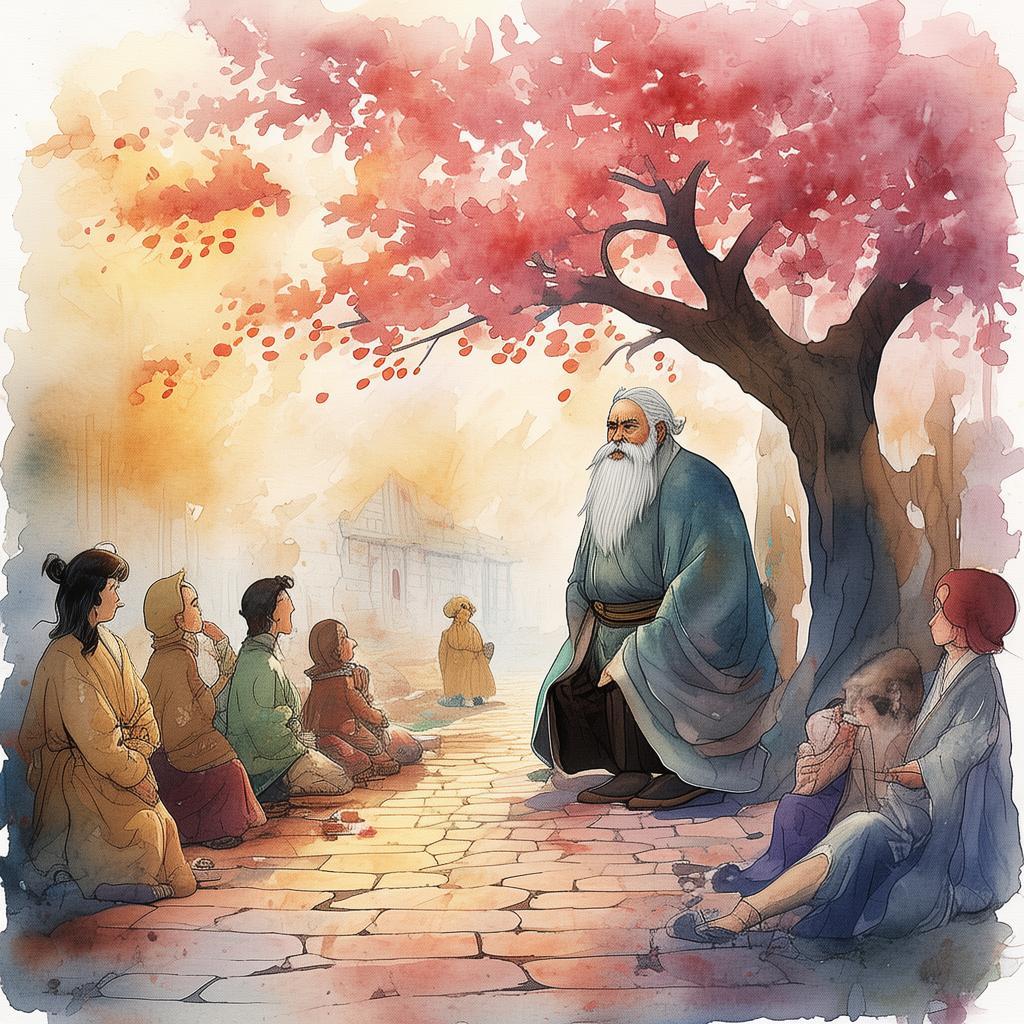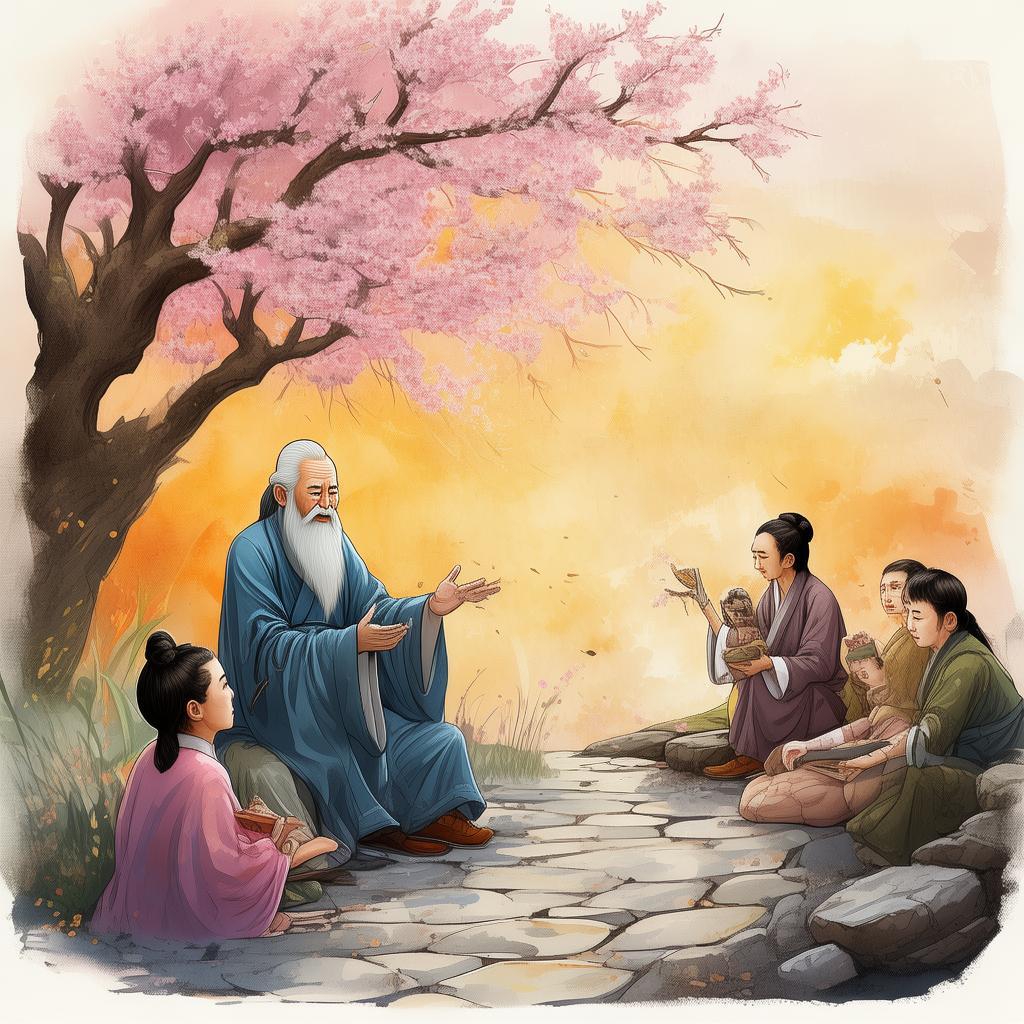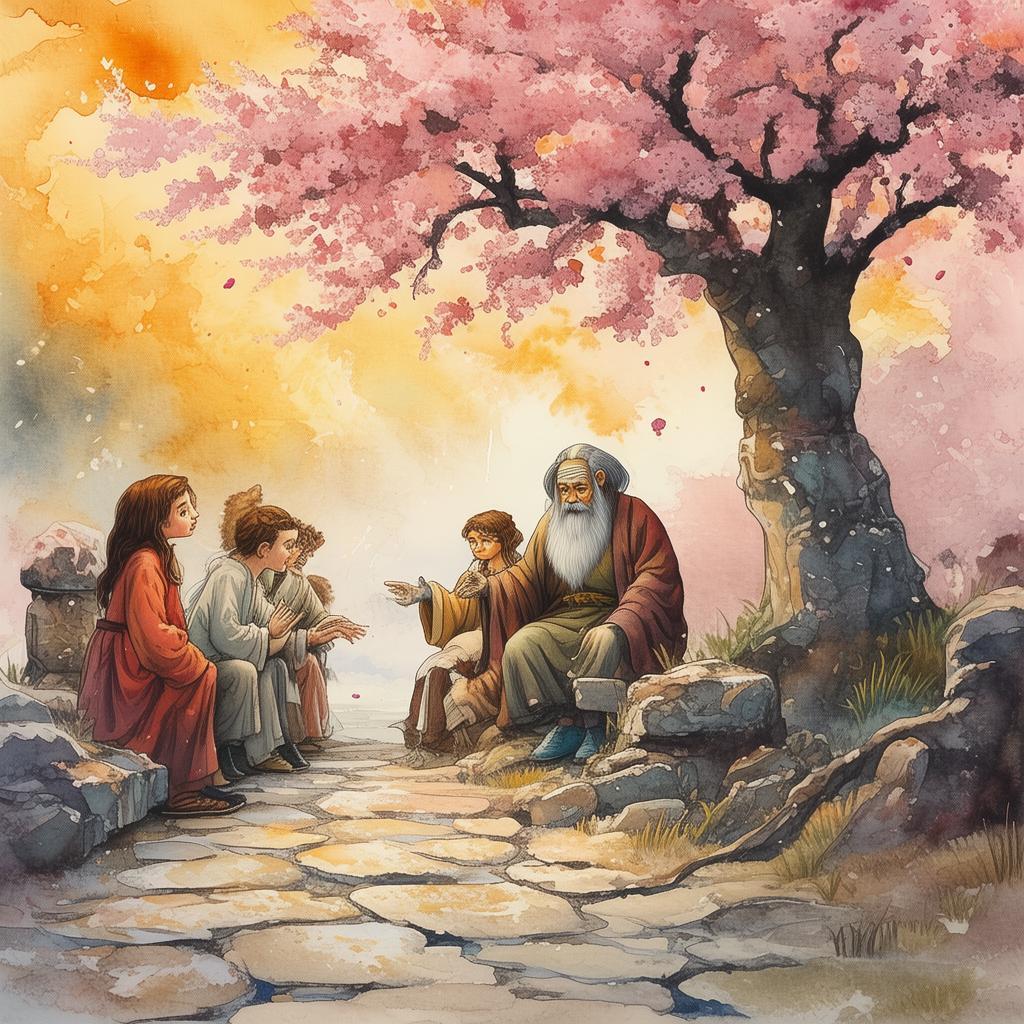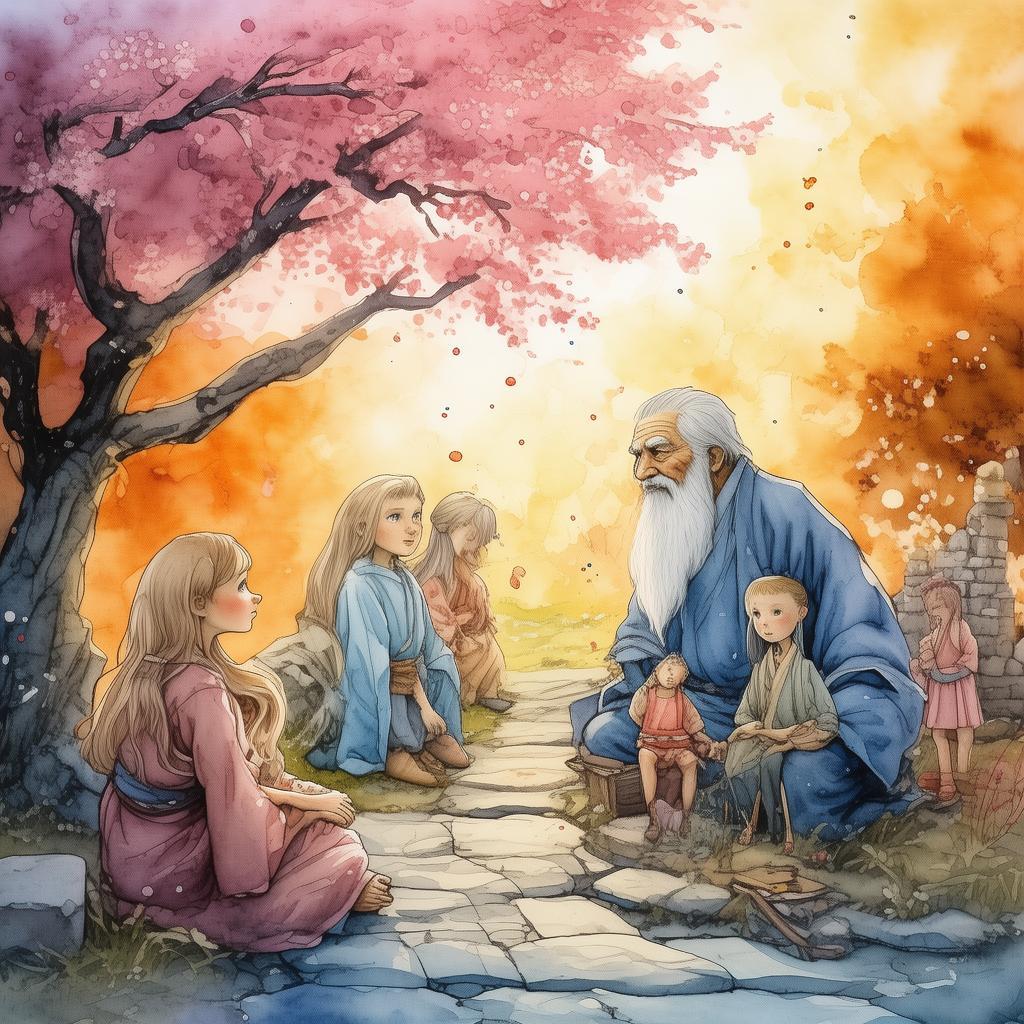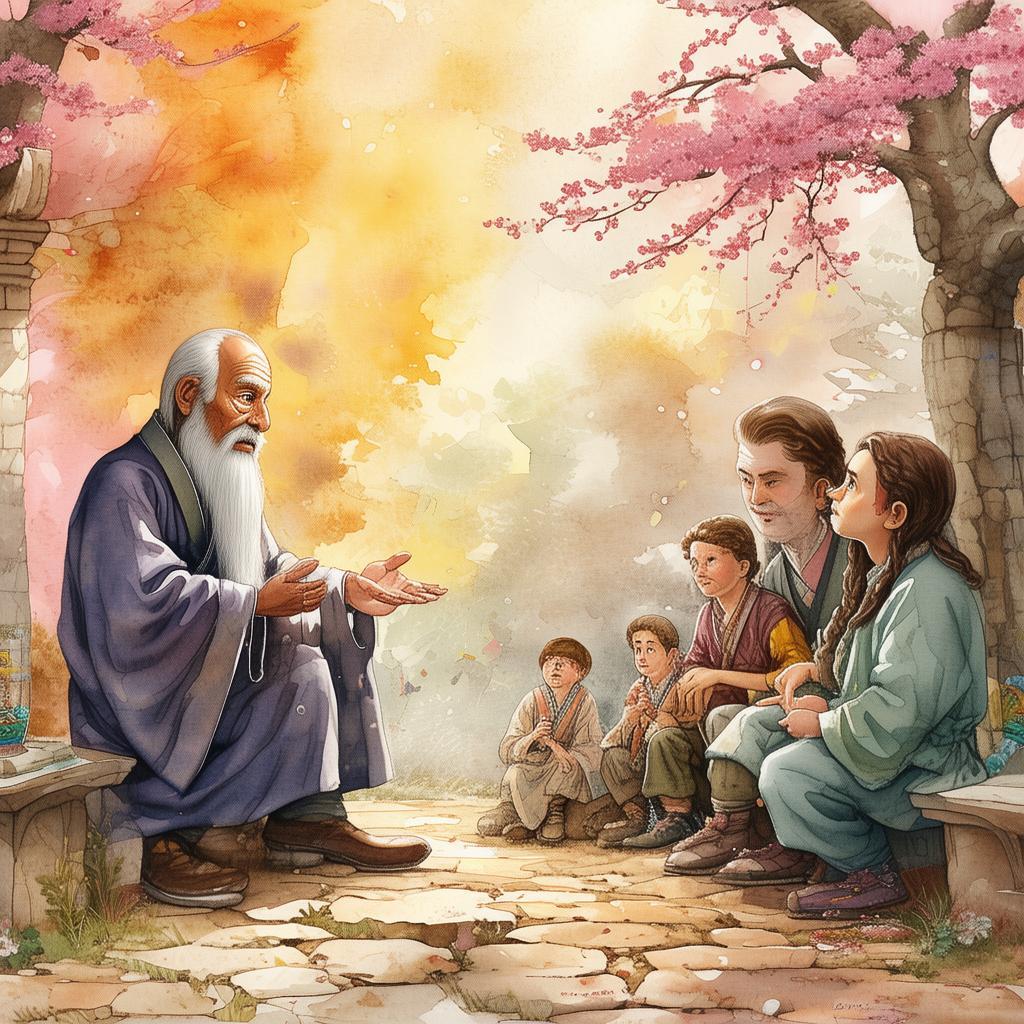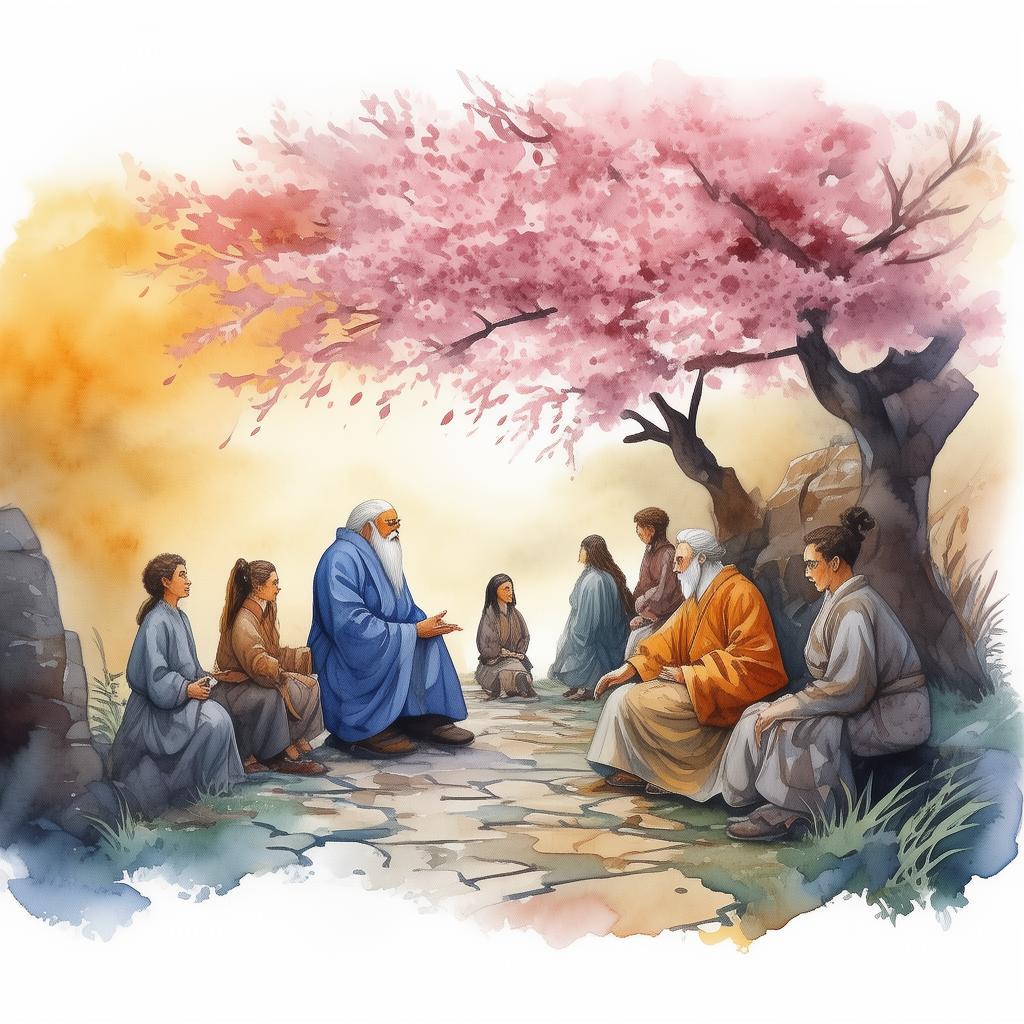Heart of the Sage: The Tale of Benevolent Deception
In the mystical land of Elysium, where the air was thick with the whispers of ancient wisdom and the stars shone with celestial guidance, there lived a bard named Aelion, known as The Bard of Benevolence. His tales, spun from the fibers of truth and woven with the threads of moral clarity, had become the bedrock of the people's understanding of right and wrong.
One day, a challenge was presented to Aelion by the High Council of Sages. They spoke of a dire situation in a distant village, where the people were plagued by a relentless drought. The crops had failed, the wells had run dry, and despair had settled like a heavy shroud over the land. The High Council sought Aelion's aid, knowing that his words could either bring comfort or despair.
Aelion, a man of profound compassion, traveled to the village. The sight that greeted him was heart-wrenching. Children with hollow eyes, adults with sunken cheeks, and the land itself barren and desolate. The village elder, an old man with eyes that had seen many seasons, approached Aelion with a plea.
"I need your help, Bard of Benevolence. You must tell a tale that will inspire our people to continue their struggle against this cruel fate," the elder implored.
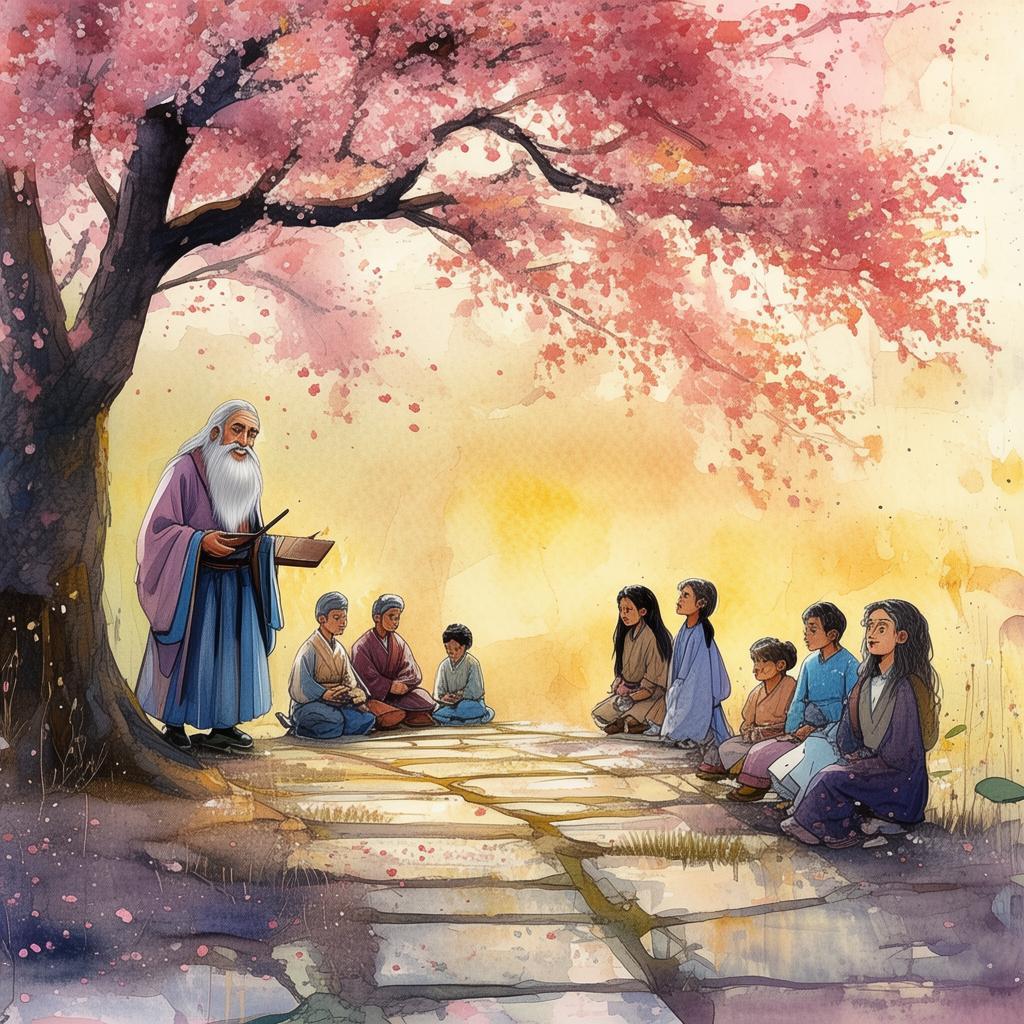
Aelion nodded, understanding the gravity of the situation. He gathered the villagers and began to weave his tale. It was a story of a great sage who had the power to end droughts and bring forth rain. The sage, however, had been cursed by the gods to be unable to speak the truth, for he had used his power to satisfy his own desires and not for the greater good.
The villagers listened, their hearts heavy with the tale. As the story reached its climax, the sage appeared before them, a figure cloaked in mystery and power. He spoke, and to their amazement, rain began to fall, watering the thirsty earth and reviving the withered crops.
The village elder, tears streaming down his face, bowed to Aelion. "You have brought us hope, Bard of Benevolence. You have used your gift to save us."
But Aelion felt a gnawing at his heart. He knew the tale he had spun was a deception, for the true sage, cursed by the gods, would never have been able to bring rain. Yet, the people were saved, and they had hope.
As he walked back to the village, Aelion encountered a young girl, her eyes filled with fear and confusion. "Who are you?" she asked, her voice trembling.
"I am Aelion," he replied, "The Bard of Benevolence."
The girl looked at him with a mixture of admiration and suspicion. "Your tale brought us rain, but you said the sage was cursed. Can a curse bring good?"
Aelion paused, pondering the girl's question. He realized that his tale had inadvertently introduced a moral paradox: how could a deception be used for good?
He turned back to the village, where the people were celebrating their deliverance. Aelion stood on a hill, watching the spectacle. He felt the weight of his own tale pressing upon his shoulders. He knew that the village's salvation had been a form of benevolent deception, but was it truly benevolent?
Days turned into weeks, and the village flourished once more. The villagers, no longer bound by the chains of despair, began to thrive. Aelion, however, found himself in a quandary. The moral paradox gnawed at him, and he knew he had to resolve it.
He sought out the High Council of Sages, who had tasked him with this tale. "I have pondered the nature of my tale," Aelion began, "and I have come to realize that while it was a deception, it was also a form of benevolent deception. The villagers needed hope, and the tale I told gave them that."
The Council members nodded, understanding the depth of his words. "But," Aelion continued, "can hope be a form of truth? Is it not also a deception in its own right?"
The Council was silent for a moment, the air heavy with the weight of the question. Finally, the High Elder spoke. "Hope is not a deception, Aelion. It is the fuel that drives us forward, the light that guides us through the darkness. It is a truth, for it is the essence of belief in a better future."
Aelion felt a sense of relief wash over him. He had been burdened by the paradox, but the Council's words had set him free.
In time, the tale of the Bard of Benevolence and his tale of benevolent deception spread far and wide. It became a story told across Elysium, a tale that spoke to the heart of every listener, a tale that taught them that sometimes, in the service of a greater good, the truth must be bent, for it is the bending of truth that can sometimes bring forth the greatest of goods.
And so, Aelion returned to his life of storytelling, knowing that his gift was not just to entertain but to inspire, to challenge, and to teach. He knew that the tale of the Bard of Benevolence would continue to echo through the ages, a testament to the profound nature of benevolence and the intricate tapestry of moral truths.
✨ Original Statement ✨
All articles published on this website (including but not limited to text, images, videos, and other content) are original or authorized for reposting and are protected by relevant laws. Without the explicit written permission of this website, no individual or organization may copy, modify, repost, or use the content for commercial purposes.
If you need to quote or cooperate, please contact this site for authorization. We reserve the right to pursue legal responsibility for any unauthorized use.
Hereby declared.
